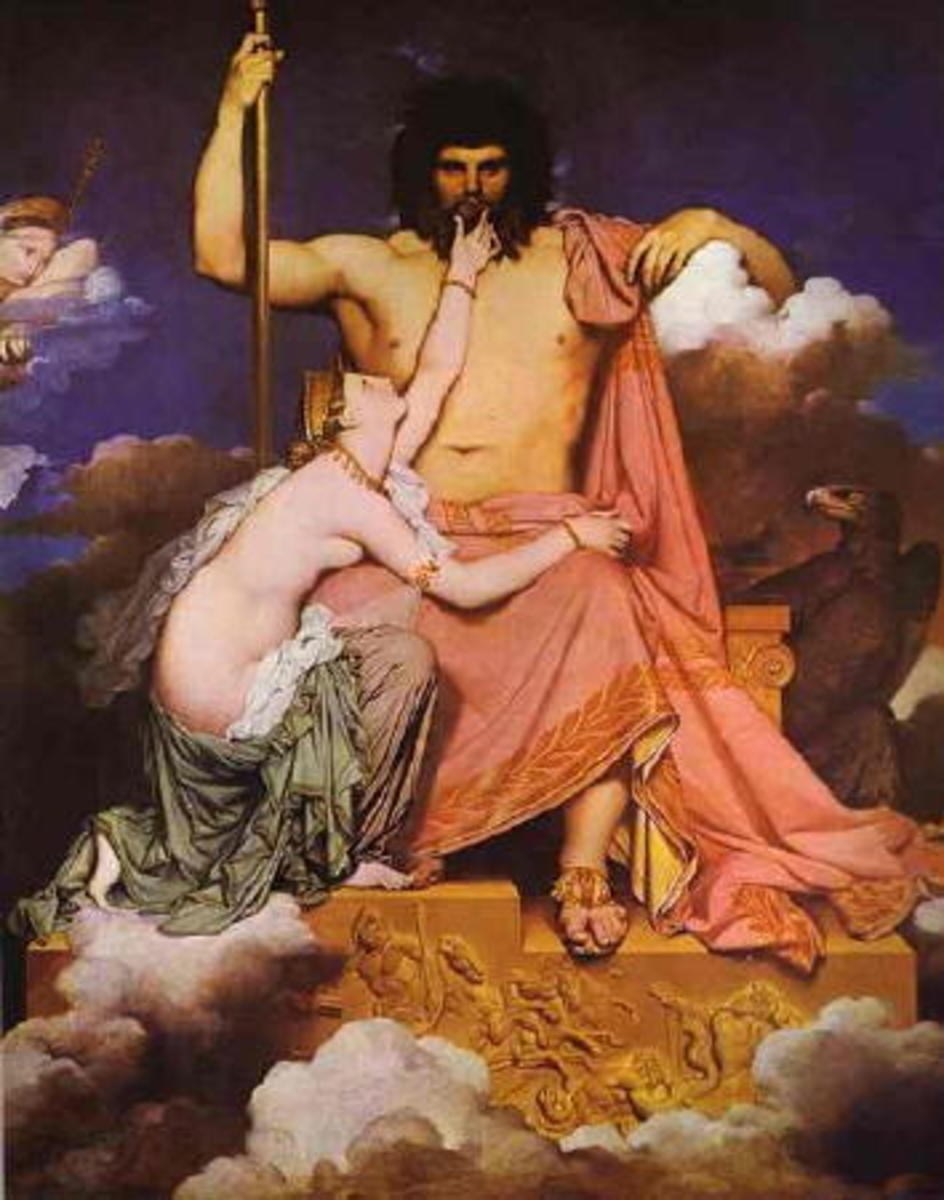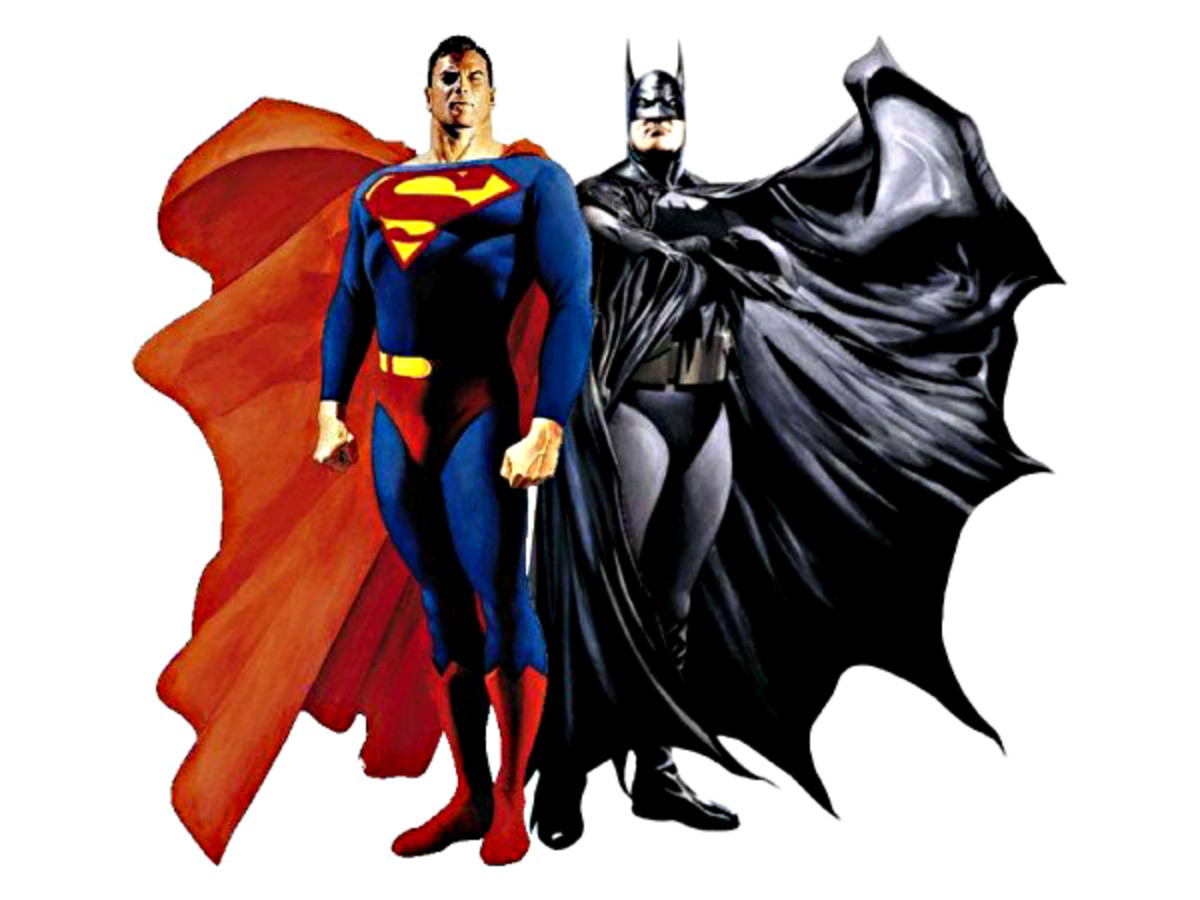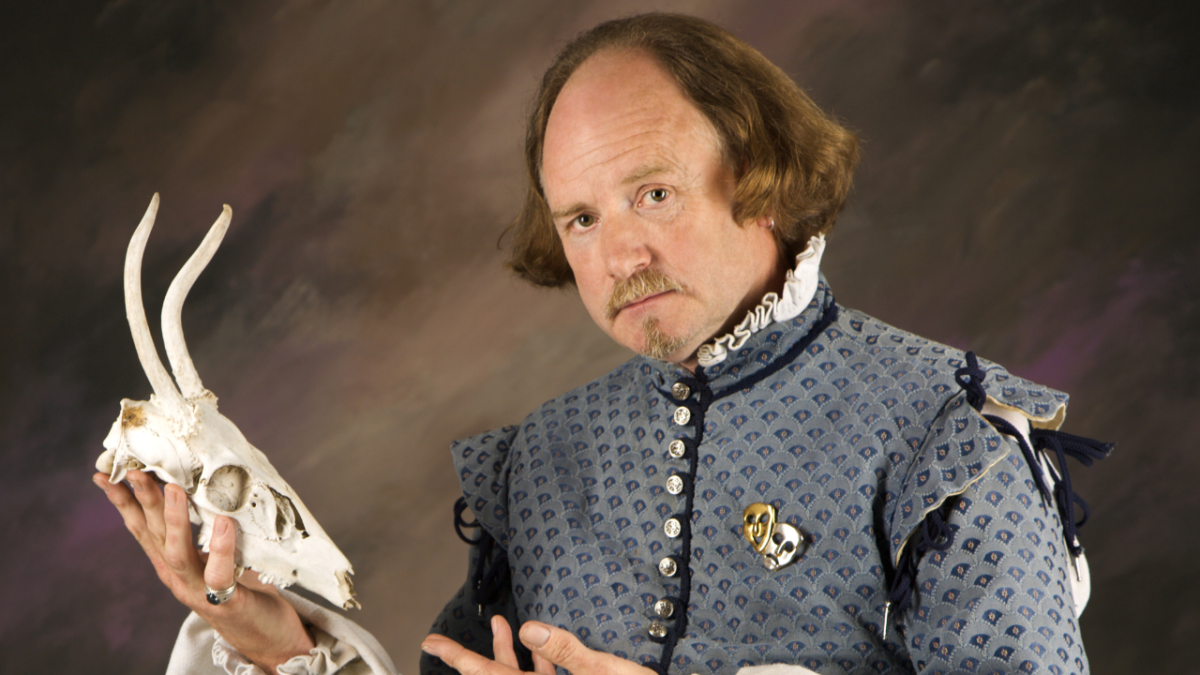Defining a Hero
Does "Hero" have a simple definition?
Evaluating the evolution of the concepts of what makes a hero provides a deeper understanding of the diversity of the word because it does not have a simple definition. The beliefs of fictitious people with powers worshiped by the ancient Greeks and children’s fantasy heroes also with powers are similar yet very different than most modern adult views of normal heroic humans.
Greeks
The ancient Greeks believed in eternal, supernatural gods that could do unbelievable acts such as controlling the oceans, the sun and even the underground or afterlife. However these gods were not their heroes but more of a means of explaining the world around them. The ancient Greeks believed their true heroes were the offspring of these gods with one mortal parent. These mortal heroes of this era had human desires and faults just as any human would, with the exception of superhuman strength or powers ( Nagy. Ancient Greek Hero).
Achilles
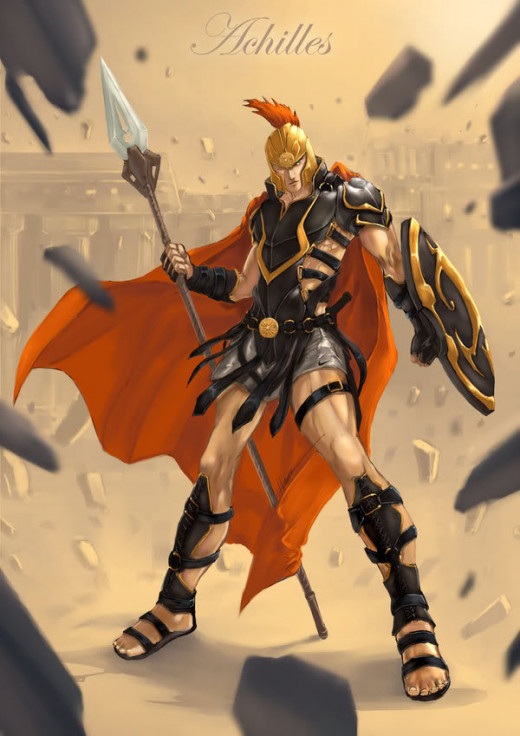
Achilles
Another fictitious, ancient Greek hero was Achilles who was their greatest Trojan war hero. His unstoppable force came from his mother holding him by his heal and dipping him head first into the Styx River. This act gave him a force of protection except for the heal that was not submerged which became his weakness and ultimate means of death. These heroes of ancient times were fictional, had superhuman powers, deeply worshiped and idolized by entire communities but still had their humanistic downfalls (Gill. Top 10 Heroes of Greek Legend).
Hercules

Hercules
Hercules is one of the most well known ancient Greek heroes and is famous for his superhuman strength. He performed helpful deeds and astounding feats but was always fighting his own battles. During his infancy in which he defeated snakes that were placed in his crib to kill him, to the same nemesis tricking him into killing his own wife and children. Hercules had human emotions and torment as great as his superhuman strength (Gill. Top 10 Heroes of Greek Legend).
Superman
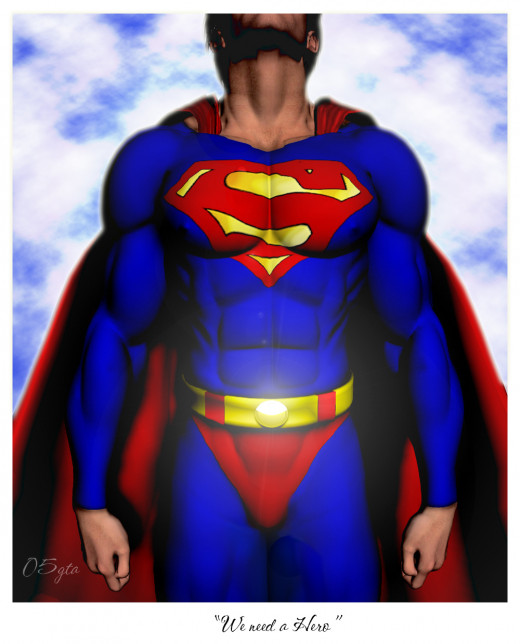
Kids' Fantasy
Children’s fantasy heroes such as Superman are also fictional characters with superhuman powers. He is a lot like Hercules, had extreme super strength but with additional powers. Superman could fly, bend steel and burn through solid objects with his eyes. Superman also like the Greek heroes felt human emotion and fell in love. His weakness was kryptonite and was the only thing that could hold him back from saving the human race when in need. Characters such as this, the Hulk, Spiderman and more are admired greatly by children of yesteryear and even still today. They are not however, worshiped by the adult community as the Greeks worshiped their heroes in ancient times.
Xena

Male V/S Female
Throughout the past and even in today’s concepts heroes have mostly been of the male gender. Females were often looked upon as the nurturer, the heart and soul of life but not as a warrior. Females were not usually portrayed as heroes, in ancient Greek traditions, however there were female gods of ancient times that controlled: love, lust, fertility, etc. More modern day female heroes are portrayed as nearly naked, sensual and seductive characters. They have been given strength and wisdom to some degree, yet still emphasizing the curvy physique of the female body. While their male counterparts are fully clothed such as Superman; Wonder woman is adorned with a strapless leotard and knee high boots. Another example would be the complete body armor covering and protecting Ironman; in contrast to Xena the princess warrior, dressed in a short, sleeveless, leather, tunic dress that is shredded into strips from the bottom of her panty line down and a neckline plummeting down between her bosom. This gives the impression that most view the real power of the female hero as the ability to sexually seduce.
Psychologists Findings
Psychological studies have enlightened the world on characteristics that separate the average Joe from a hero. Research has shown that there are people that are more likely to step up in an emergency than others. These people have particular traits that may be stronger or unique to a certain few. Some of the traits psychologists have discovered to be evident and stronger in heroic people are: hope, sympathy, leadership skills, strong morals and values, high value on honesty and push fear aside when it comes to their own bodily or material safety. These are not superhuman powers as Hercules, Superman or Wonder Woman have but traits of a normal, compassionate and determined human being (Shellenbarger. Are You a Hero or a Bystander).
Today's Society
In today’s society adults and even older children have a much different view of what a hero is. As time moves on and humans learn more about the surrounding world and more discoveries are made about the human body and mind, beliefs begin to change. Religion may add some insight as well as a new and better understanding of the scientific research of the earth and how all of its components work, rather than different gods controlling it all.
So What is a Hero?
No super-strength required, no green-monstrous transformation needed, no capes nor golden cuffs are mandatory to be a hero. The prerequisites for a hero in most of today’s society views include certain human qualities. Based on a recent Facebook poll, Beth Patton Knotts states, “Heroes come in all shapes, sizes, colors and types”. Qualities of a hero today include: a warm heart, bravery, strength and selflessness. Some describe a hero as a person who is always there and always ready to answer the call when needed, someone who will reach out and give what they have to help. Others have expressed a hero is a mother that is willing to work two jobs and make sacrifices for her children. In addition a hero is described as not having a particular appearance or logo on their chest. Contrary to the fantasy caricaturist costumes worn by the childhood fantasies and the worship the ancient Greek heroes received, today’s heroes usually do not wish to have the extra attention or recognition (Larch-Letart. What does a hero look like? Need some help).
Often times people may ask, what is a hero? And often times one will hear titles such as: soldiers, police officers, firemen and even doctors. These people are indeed heroes by their chosen profession, the requirements for their job place them in positions to save lives. They are acknowledged as saviors and or superheroes, when it is simply a normal human being doing their job. The act of pulling a child from a burning building, the soldier marching in the way of gun fire, the officer risking their life to protect their neighbors or the doctor that spends eight tedious hours in surgery to save a life, this doesn’t make them a hero. These are job skills, just as a lawyer is required to show up for court, and a fry cook must work with hot grease. The action alone does not make a person a hero, as even a robot can be programmed to perform certain acts of valor. However it is the human spirit inside, the desire to protect, the passion to help. Anyone can pull off some thoughtless quick reaction of stopping a child from walking out in the street. The action of stopping that child is just that, simply an action. It is the love and concern for that child that turns that action into a passion which builds a hero.
Define a Hero
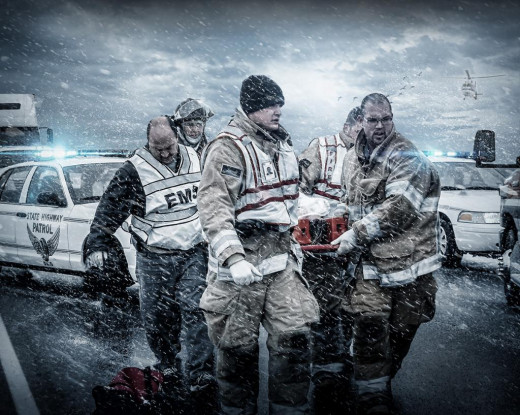
Heroism?
Heroism is the drive of compassion that makes a doctor want to save a life, it is the bravery of the soldier that led him to the fields of fire, it is the sense of pride the police have that make them want to keep our streets safe. Occupations and actions do not make a hero and therefore a hero can come in many forms. A hero can be simply a human who has a passion for caring about another, whether it be the quality of life or the survival of the actual body. Defining a hero: let it be a descendant from a fictional god, allow the dream of Superman to live on in a child’s imagination, respect the men and women in uniform that risk their lives, and learn to look for and acknowledge that anyone, anywhere can step up and become a capeless hero. To each individual a hero has similar qualities, but to society past and present heroes are a diverse group; to define this is to define the spirit and imagination of humankind throughout all modern day and human history.
Sources
Gill, N.S. “Top 10 Heroes of Greek Legend”. About.com. 2013. Web. 11, Nov. 6, Dec. 2013.
Larch-Letart, Tammy. (Tammy Larch-Letart). “What does a hero look like?
Please answer to help with my paper have to show references and I can use you!” Dec. 6,
2013, 9:50 p.m. EST. Facebook.
Larch-Letart, Tammy. (Tammy Larch-Letart). “Need some help. Doing my final English paper
on Heroes .... please comment as to what you think a hero is and what a hero looks like.
Don't over think it. Thank you for helping in advance!” Dec. 3, 2013, 10:30 p.m. EST.
Facebook.
Nagy, Gregory. “Ancient Greek Hero”. Edx. 2013. Web. 11, Nov. 6, Dec. 2013.
Shellenbarger, Sue. “Are You a Hero or a Bystander?”. Dow Jones & Company. 2013. Web. 11,
Nov. 6, Dec. 2013.


